*** ¿Podrían nuestros dos intrépidos personajes viajar hasta el presente en un dragón alado?
Don Quixote and Sancho Panza
run the global chessboard
*** Can young people find pleasure and answers to current concerns in reading works written more than four centuries ago?
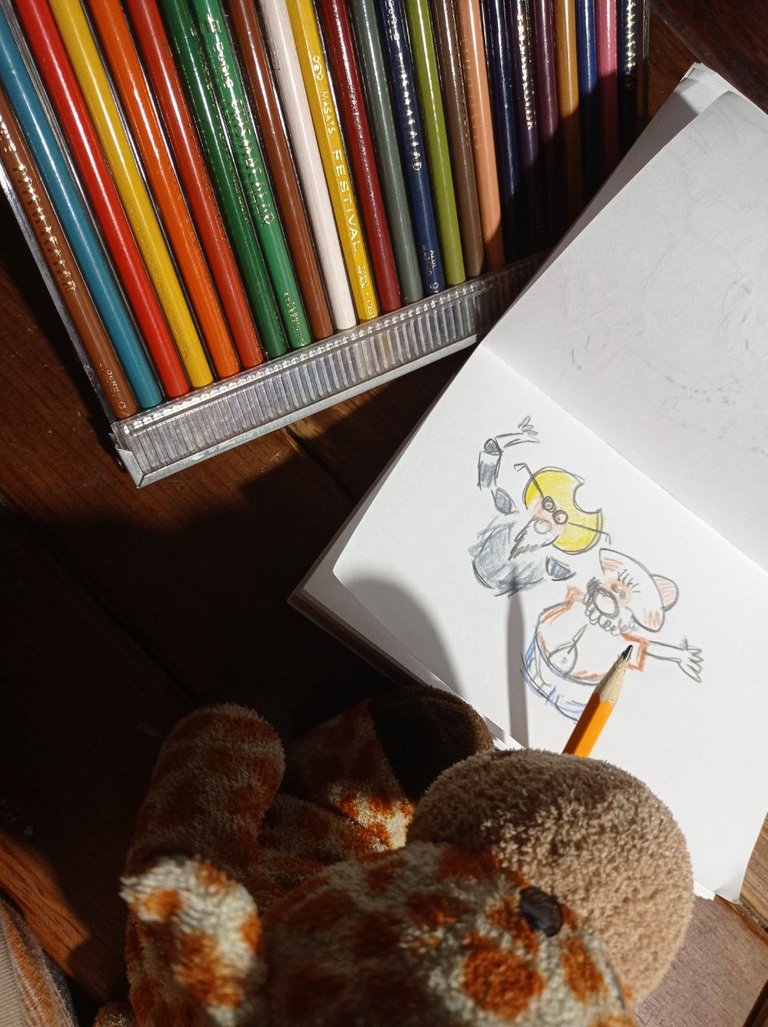
Photos and drawings: Pepo Alva Silva and his father
Por Cristóbal J. Alva Ramírez
Caracas, 13 de junio de 2021
“…Dime, ¿no ves aquel caballero que hacia nosotros viene, sobre un caballo rucio rodado, que trae puesto en la cabeza un yelmo de oro?
-Lo que yo veo y columbro -respondió Sancho- no es sino un hombre sobre un asno, pardo como el mío, que trae sobre la cabeza una cosa que relumbra.
-Pues ése es el yelmo de Mambrino -dijo don Quijote-. Apártate a una parte y déjame con él a solas: verás cuán sin hablar palabra, por ahorrar del tiempo, concluyo esta aventura, y queda por mío el yelmo que tanto he deseado”.
Capítulo XXI.
Que trata de la alta aventura y rica ganancia
del yelmo de Mambrino,
con otras sucedidas a nuestro invencible caballero
"...Tell me, don't you see that knight coming towards us, on a roan horse, wearing a golden helmet on his head?
-What I see and see -answered Sancho- is nothing but a man on a donkey, brown like mine, with a shining thing on his head.
-Well, that is the helmet of Mambrino,-said Don Quixote-. Go aside and leave me alone with him; you will see how without a word, to save time, I will conclude this adventure, and the helmet I have so longed for will be mine.
Chapter XXI. Which treats of the high adventure and rich gain
of the helmet of Mambrino, with other adventures that befell our invincible knight
Don Quijote y Sancho Panza recorren tierras del mundo. Rocinante y jumento han sacado alas. Vuelan en brazos de austro desde Suráfrica hasta los Urales, desde La Patagonia rebelde hasta el Kilimanjaro. Me preguntan algunas amistades si acaso nuestros tiernos héroes van protegidos y toman medidas ante los virus globales. Seguramente lo hacen pues las pestes no son nuevas. Mas cabe la interrogante: ¿Son los clásicos de la literatura hispana lecturas atractivas en tiempos de pandemia?
“El Ingenioso Hidalgo don Quijote de la Mancha”, de Miguel de Cervantes Saavedra (Alcalá de Henares, 29 de septiembre de 1547-Madrid, 23 de abril de 1616), es una obra escrita en dos partes entre los años 1605 y 1615, que puede despertar pasión entre lectores de muy distintas edades. Tal vez las ediciones en volúmenes muy grandes y pesados no son apropiadas para llevarlas en periplos citadinos, porque no es fácil de desplegar libros así en el metro o en el bus. Sin embargo, por las circunstancias del encierro pandémico, tenemos mayores oportunidades para leer esta obra cómodamente en casa. ¡Aprovechemos!
Ahora bien, una vez leído el libro, las historias de nuestros dos fabulosos personajes volverán a llamarnos una y otra vez. Inclusive, es viable leer cualquier capítulo de modo aleatorio y encontrar buen motivo de regocijo.
Don Quixote and Sancho Panza travel through the lands of the world. Rocinante and donkey have taken wings. They fly in the arms of Austro from South Africa to the Urals, from the rebellious Patagonia to Kilimanjaro. Some friends ask me if our tender heroes are protected and take measures against global viruses. Surely they do, because pests are not new. But the question arises: Are the classics of Hispanic literature attractive reading in times of pandemic?
"El Ingenioso Hidalgo Don Quijote de la Mancha”, by Miguel de Cervantes Saavedra (Alcalá de Henares, September 29, 1547-Madrid, April 23, 1616), is a work written in two parts between 1605 and 1615, which can arouse passion among readers of very different ages. Perhaps the editions in very large and heavy volumes are not appropriate to carry them on city tours, because it is not easy to deploy such books in the subway or on the bus. However, due to the circumstances of the pandemic confinement, we have more opportunities to read this work comfortably at home. Let's take advantage of it!
Now, once we have read the book, the stories of two fabulous characters will call us back again and again. It is even possible to read any chapter at random and find good reason to rejoice.
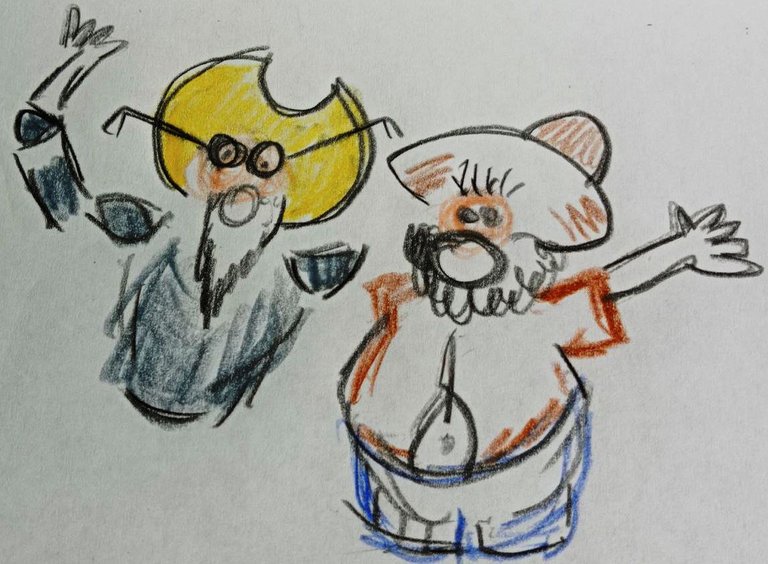
Lectura universal
¿Qué hace tan atractiva la lectura de esta obra? Creo que es la disposición a la aventura de sus dos protagonistas, la lucha versus gamberros y rufianes siempre con resultados sorprendentes; la ingenuidad y el honor en intensa lucha ante quienes traman burlas y pesadas jugadas; y la batalla frente a los adversarios más terribles: los espectros que emergen en la propia mente del hidalgo.
“Cuando llegaron a don Quijote, ya él estaba levantado de la cama, y proseguía en sus voces y en sus desatinos, dando cuchilladas y reveses a todas partes, estando tan despierto como si nunca hubiera dormido. Abrazáronse con él y por fuerza le volvieron al lecho; y después que hubo sosegado un poco, volviéndose a hablar con el Cura, le dijo:
-Por cierto, señor arzobispo Turpín, que es gran mengua de los que nos llamamos doce Pares dejar tan sin más ni más, llevar la vitoria deste torneo a los caballeros cortesanos, habiendo nosotros los aventureros ganado el prez en los tres días antecedentes.
-Calle vuestra merced, señor compadre -dijo el Cura-; que Dios será servido que la suerte se mude y que lo que hoy se pierde se gane mañana, y atienda vuestra merced a su salud por agora; que me parece que debe de estar demasiadamente cansado, si ya no es que está malferido.
-Ferido no -dijo don Quijote-, pero molido y quebrantado, no hay duda en ello; porque aquel bastardo de don Roldán me ha molido a palos con el tronco de una encina, y todo, de envidia, porque ve que yo solo soy el opuesto de sus valentías. Mas no me llamaría yo Reinaldos de Montalbán si, en levantándome deste lecho, no me lo pagare, a pesar de todos sus encantamentos; y, por agora, tráiganme de yantar, que sé que es lo que más me hará al caso, y quédese lo del vengarme a mi cargo.
Hiciéronlo ansí: diéronle de comer, y quedóse otra vez dormido, y ellos, admirados de su locura”.
Capítulo VII. De la segunda salida
de nuestro buen caballero don Quijote de la Mancha.
Universal reading
What makes this work so appealing to read? I think it is the willingness to adventure of its two protagonists, the fight against scoundrels and ruffians always with surprising results; the ingenuity and honor in intense struggle against those who plot mockery and heavy tricks; and the battle against the most terrible adversaries: the specters that emerge in the mind of the nobleman himself.
"When they came to Don Quixote, he was already out of bed, and he continued in his voices and in his nonsense, and stabbing everywhere, being as awake as if he had never slept. They embraced him and forcibly returned him to bed; and after he had calmed down a little, turning to speak to the priest, he said to him:
-Truly, lord Archbishop Turpin, it is a great disservice to us who call ourselves twelve Peers to leave so without more or more, to carry the victory of this tournament to the courtly knights, we adventurers having won the prize in the three preceding days.
-You may be quiet, senor compadre, -said the priest-; God be good enough to change the fortune, and what is lost to-day may be gained to-morrow, and you must take care of your health for the present; for it seems to me that you must be too tired, if you are not already ill-fated.
-Not tired, -said Don Quixote-, but crushed and broken, there is no doubt about that; for that bastard Don Roland has beaten me to a pulp with the trunk of an oak, and all out of envy, because he sees that I am the very opposite of his bravery. But I would not call myself Reinaldos de Montalbán if, on rising from this bed, he did not repay me, in spite of all his charms; and, for the present, bring me some food, which I know is what will do me the most good, and let the matter of revenge be left to me.
They did so: they gave him food, and he fell asleep again, and they were amazed at his madness".
Chapter VII. Of the second departure
of our good knight Don Quixote of La Mancha.
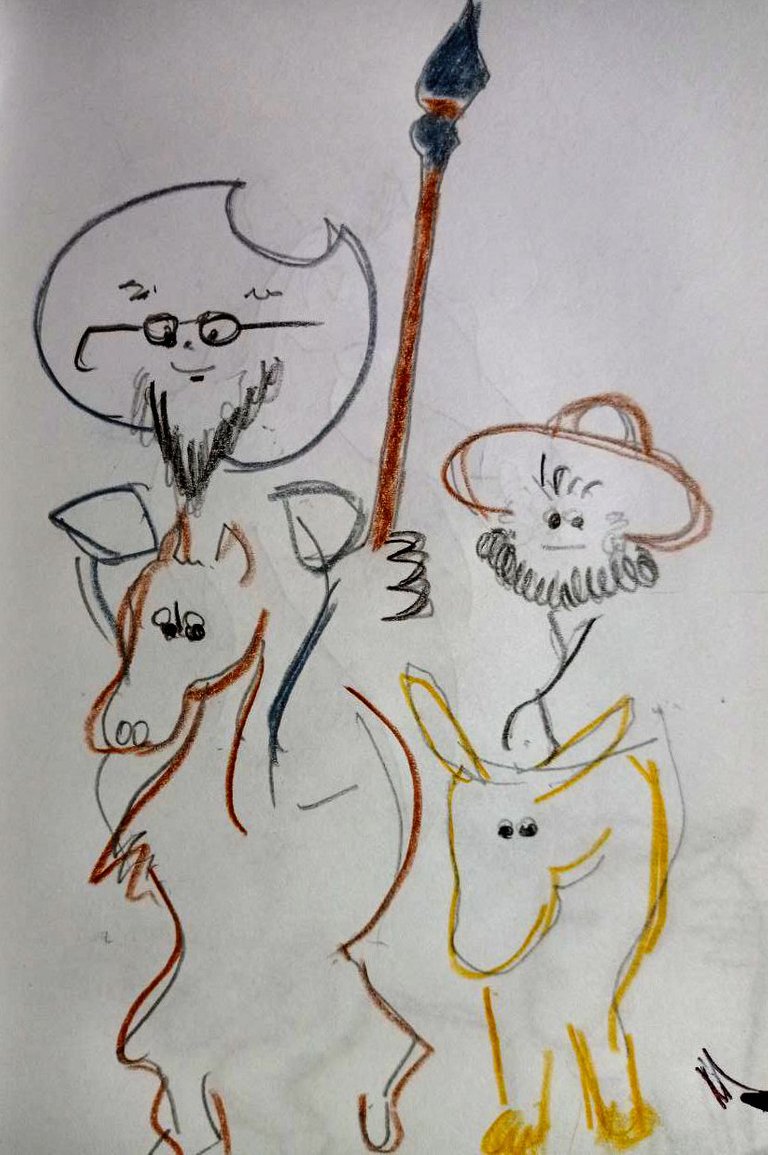
Sobre el Yelmo de Mambrino
La historia del Quijote está llena de referentes de la literatura caballeresca y de antiguas leyendas europeas. Cualquier prenda obtenida en batalla de un guerrero vencido daba al caballero la honra y el derecho a disfrutarla. En este caso, Don Quijote ve en una especie de jofaina no el instrumento para remojar las barbas sino un legendario yelmo que protege la cabeza y brinda inmortalidad a quien lo porta.
“Cuando Sancho oyó llamar a la bacía celada no pudo tener la risa; mas vínosele a las mientes la cólera de su amo, y calló en la mitad della.
-¿De qué te ríes, Sancho? -dijo don Quijote.
-Ríome -respondió él- de considerar la gran cabeza que tenía el pagano dueño deste almete, que no semeja sino una bacía de barbero, pintiparada.
-¿Sabes qué imagino, Sancho? Que esta famosa pieza deste encantado yelmo por algún extraño accidente, debió de venir a manos de quien no supo conocer ni estimar su valor, y, sin saber lo que hacía, viéndola de oro purísimo, debió de fundir la otra mitad para aprovecharse del precio, y de la otra mitad hizo esta que parece bacía de barbero, como tú dices. Pero sea lo que fuere; que para mí que la conozco no hace al caso su trasmutación; que yo la aderezaré en el primer lugar donde haya herrero, y de suerte, que no le haga ventaja, ni aun le llegue, la que hizo y forjó el dios de las herrerías para el dios de las batallas; y en este entretanto la traeré como pudiere, que más vale algo que no nada; cuanto más, que bien será bastante para defenderme de alguna pedrada”.
Capítulo XXI. Que trata de la alta aventura
y rica ganancia del yelmo de Mambrino,
con otras sucedidas a nuestro invencible caballero.
De este modo se completa la indumentaria del caballero andante con esta especie de platón metálico con una hendedura que le corona.
About the Helmet of Mambrino
The story of Don Quixote is full of references to chivalric literature and ancient European legends. Any garment obtained in battle from a defeated warrior gave the knight honor and the right to enjoy it. In this case, Don Quixote sees in a kind of basin not the instrument for soaking beards but a legendary helmet that protects the head and gives immortality to the wearer.
"When Sancho heard the call of the celadon basin, he could not laugh; but the anger of his master came to his mind, and he fell silent in the middle of it.
-What are you laughing at, Sancho? -said Don Quixote.
-I am laughing, -said he-, at the thought of the great head that the heathen owner of this lodge had, which resembles nothing so much as a barber's basin.
-Do you know what I imagine, Sancho? That this famous piece of this enchanted helmet, by some strange accident, must have come into the hands of one who did not know or estimate its value, and, not knowing what he was doing, seeing it of the purest gold, must have melted down the other half to take advantage of the price, and from the other half he made this one that looks like a barber's baccia, as you say. But whatever the case may be, for me, who know it, its transmutation is not relevant; I will refine it in the first place where there is a blacksmith, and in such a way that it will not give him an advantage, nor even reach him, the one made and forged by the god of blacksmiths for the god of battles; and in the meantime I will bring it as I can, because something is better than nothing; moreover, it will be enough to defend me from a stone or two.
Chapter XXI. Which treats of the high adventure
and rich gain of the helmet of Mambrino,
with others that happened to our invincible knight.
In this way the clothing of the knight-errant is completed with this kind of metallic plate with a slit that crowns it.
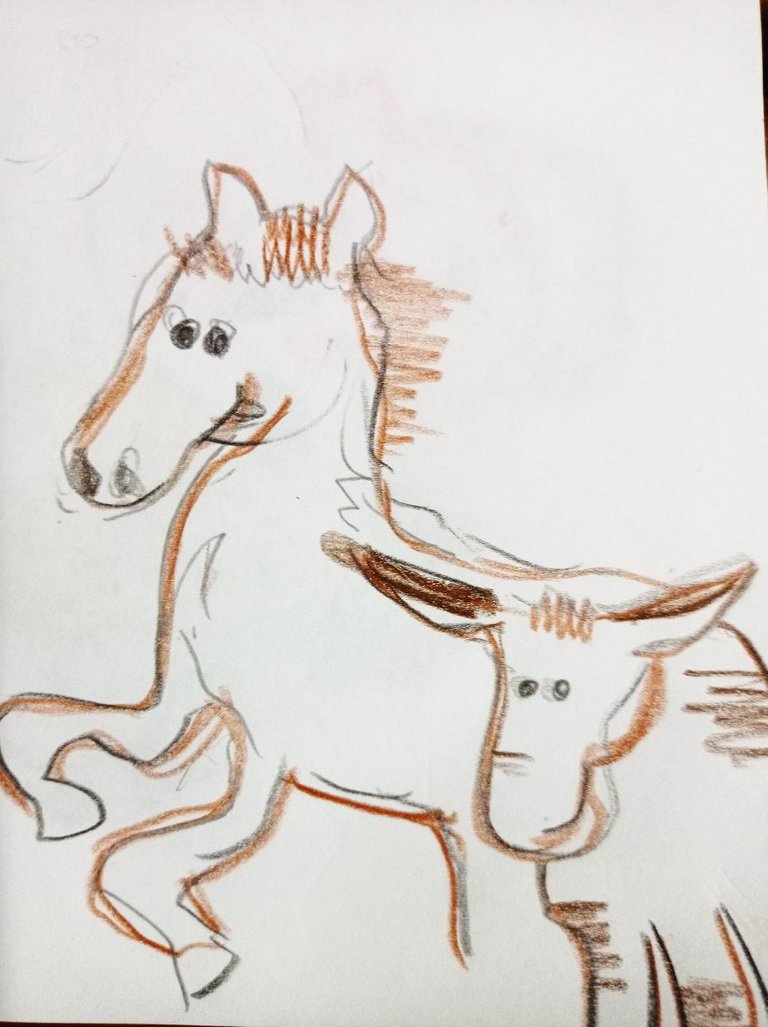
Un sabio gobernante
La obra contiene también la arquetípica sabiduría del hombre sencillo, expresada en largas disertaciones y sorprendentes juegos de palabras, con los cuales Sancho Panza saca del paso a Don Quijote y a ratos le impacienta. Con ese espíritu, el sencillo hombre del pueblo alcanza a gobernar con sabiduría, aunque no pueda realizar una sola comida suculenta en la ínsula Barataria.
“-También, Sancho, no has de mezclar en tus pláticas la muchedumbre de refranes que sueles; que puesto que los refranes son sentencias breves, muchas veces los traes tan por los cabellos, que más parecen disparates que sentencias.
-Eso Dios lo puede remediar -respondió Sancho-; porque sé más refranes que un libro, y viénenseme tantos juntos a la boca cuando hablo, que riñen, por salir, unos con otros; pero la lengua va arrojando los primeros que encuentra, aunque no vengan a pelo; más yo tendré cuenta de aquí adelante de decir los que convengan a la gravedad de mi cargo; que en casa llena, presto se guisa la cena; y quien destaja, no baraja; y a buen salvo está el que repica; y el dar y el tener, seso ha menester”.
Capítulo XLIII. De los consejos segundos
que dio don Quijote a Sancho Panza.
A wise ruler
The work also contains the archetypal wisdom of the simple man, expressed in long dissertations and surprising puns, with which Sancho Panza takes Don Quixote out of his stride and at times makes him impatient. In this spirit, the simple man of the people manages to govern wisely, even though he cannot make a single succulent meal in the island of Barataria.
"Also, Sancho, you must not mix in your talks the multitude of proverbs that you usually do; for since proverbs are short sentences, you often bring them so much by the hair, that they seem more like nonsense than sentences.
-God can remedy that, -replied Sancho-; for I know more proverbs than a book, and so many come together in my mouth when I speak, that they quarrel one with another as they come out; but the tongue throws out the first it finds, even if they don't come in the nick of time; But I will be careful from now on to say those that suit the gravity of my office; for in a full house, supper is quickly prepared; and he who opens, does not shuffle; and he who chimes is safe; and to give and to have, brains are necessary.
Chapter XLIII.
Don Quixote gave to Sancho Panza.
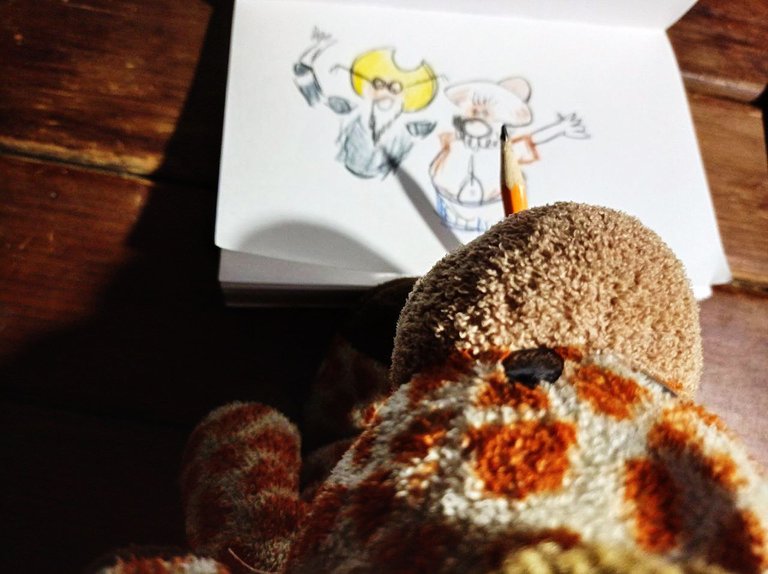
Algunas elucubraciones
“El Ingenioso Hidalgo don Quijote de la Mancha”, por supuesto, además de la lectura placentera, admite diversas metalecturas para avezados, experimentados o intuitivos viajeros del pensamiento.
Propongo algunas:
¿Qué ocurriría si nuestros dos amigos volaran hasta el presente en un dragón alado?
¿Qué caminos habrían seguido Don Quixote y Sancho Panza en el mundo contemporáneo para enfrentar las injusticias?
¿Acaso estarían en Palestina, Cali, Medellín, Santiago o el Sahara occidental?
¿En qué motín o en qué huelga se harían presentes?
¿Junto a quiénes batirían lanzas?
¿Qué podría alegar Sancho Panza ante la Asamblea de las Naciones Unidas?
Hago un alto luego de varias horas de labor frente a la computadora. Tomo un café y despliego las páginas de un libro amado para conversar con dos viejos amigos, Don Quixote y Sancho Panza. Mientras tanto, Rocinante y jumento pastan en un parque del boulevard.
Referencia bibliográfica
Cervantes Saavedra, Miguel de (1911-1913). El ingenioso hidalgo Don Quijote de la Mancha.
Madrid: Ediciones de La Lectura.
Recuperado el 13/6/2021 en: http://www.cervantesvirtual.com/obra-visor/el-ingenioso-hidalgo-don-quijote-de-la-mancha--0/html/
Some lucubrations
"The Ingenious Hidalgo Don Quixote of La Mancha", of course, besides the pleasurable reading, admits diverse metalecturas for seasoned, experienced or intuitive travelers of the thought.
I propose a few:
• What would happen if our two friends flew to the present on a winged dragon?
• What paths would Don Quixote and Sancho Panza have taken in the contemporary world to confront injustices?
• Would they be in Palestine, Cali, Medellin, Santiago or Western Sahara?
• In what riot or strike would they be present?
• With whom would they fight spears?
• What could Sancho Panza at the United Nations Assembly?
I take a break after several hours of work in front of the computer. I have a cup of coffee and unfold the pages of a beloved book to chat with two old friends, Don Quixote and Sancho Panza. Meanwhile, Rocinante and rucio graze in a park on the boulevard.
Bibliographic reference
Cervantes Saavedra, Miguel de (1911-1913). El ingenioso hidalgo Don Quijote de la Mancha.
Madrid: Ediciones de La Lectura.
Retrieved on 6/13/2021 at: http://www.cervantesvirtual.com/obra-visor/el-ingenioso-hidalgo-don-quijote-de-la-mancha--0/html/
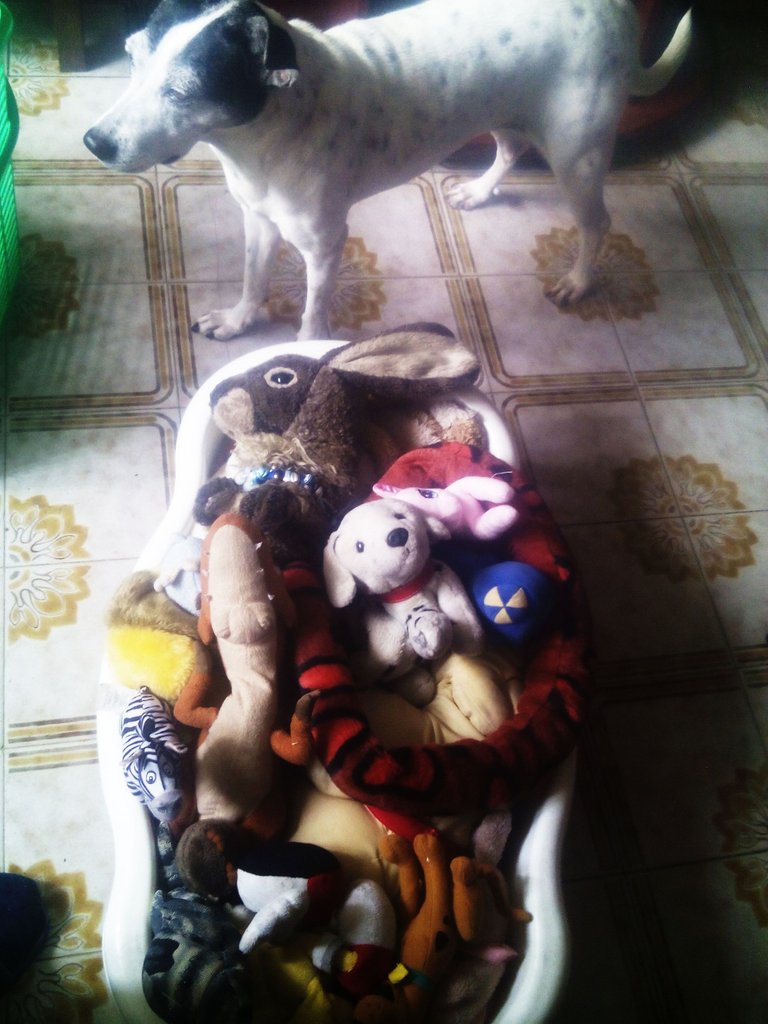
Hoy le toca baño a Lola y a todo el personal de producción
Lola and all production staff are on bathroom duty today.
Caracas, June 13, 2021
Congratulations @cristorebelde! You have completed the following achievement on the Hive blockchain and have been rewarded with new badge(s) :
Your next target is to reach 50 upvotes.
You can view your badges on your board and compare yourself to others in the Ranking
If you no longer want to receive notifications, reply to this comment with the word
STOPCongratulations @cristorebelde! You received a personal badge!
You can view your badges on your board and compare yourself to others in the Ranking
Check out the last post from @hivebuzz: